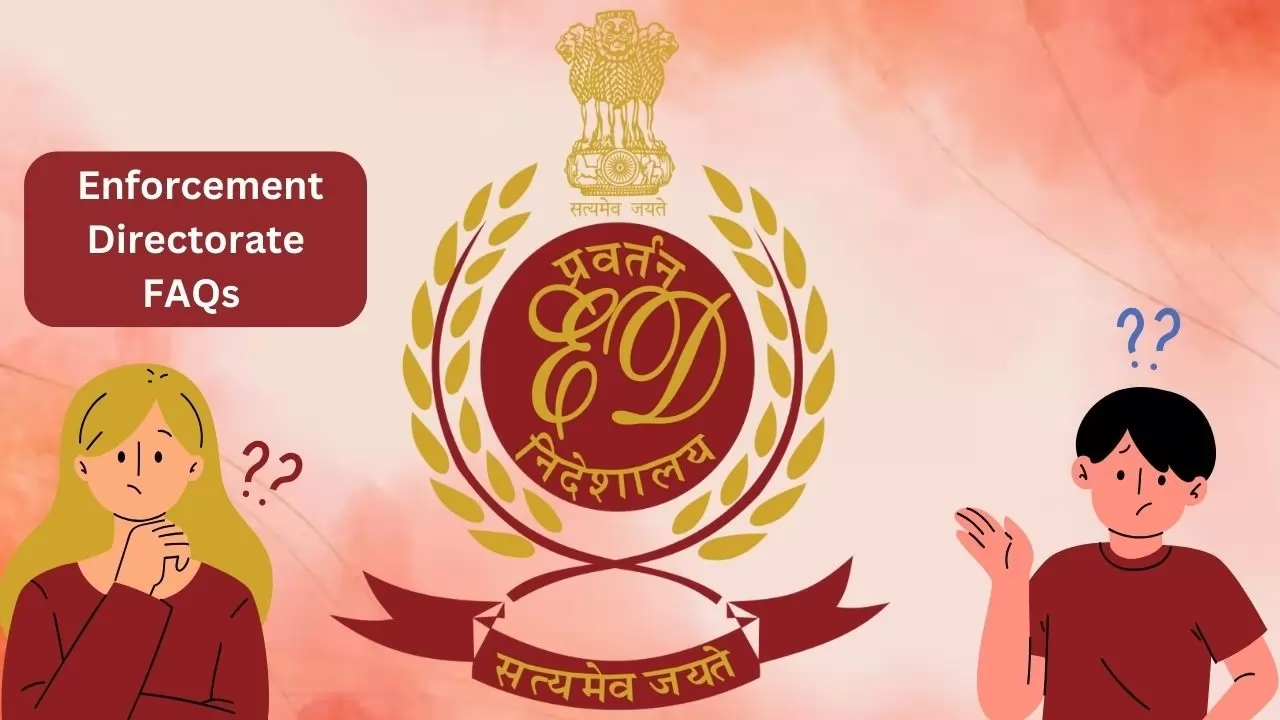
Canva
Ahead of the upcoming Lok Sabha elections, Prime Minister Narendra Modi addressed concerns regarding the Enforcement Directorate (ED) in an interview. He emphasized the status of ED as an 'independent organization.' He clarified that the ED initiates action only after receiving cases from various vigilance and investigation departments across the country, countering allegations from opposition parties that the BJP was leveraging the agency to intimidate its political rivals.
Now, let's delve into the formation, powers, and operations of the Enforcement Directorate (ED) through a series of Frequently Asked Questions (FAQs):
The Directorate of Enforcement (ED) is an organization tasked with investigating money laundering and foreign exchange law violations under the Ministry of Finance.
The Enforcement Directorate (ED) originated from an 'Enforcement Unit' formed in the Department of Economic Affairs in 1956 to handle violations of exchange control laws under FERA.
The ED is headed by a Director with regional offices in Mumbai, Chennai, Chandigarh, Kolkata, and Delhi, each led by Special Directors, along with zonal and sub-zonal offices.
The ED enforces Acts like Conservation of Foreign Exchange and Prevention of Smuggling Activities Act (COFEPOSA), Foreign Exchange Management Act (FEMA), and Prevention of Money Laundering Act (PMLA), allowing it to investigate contraventions of foreign exchange laws, trace laundered assets, and attach properties of fugitive economic offenders.
The ED's jurisdiction covers all of India under FEMA and PMLA, enabling action against any person or legal entity involved in money laundering offenses.
The recruitment of officers in the ED includes direct recruitment and drawing officers from other investigation agencies, such as IRS, IPS, and IAS.
In 2021, ordinances were promulgated allowing the extension of the tenure of ED directors up to five years, with the requirement of high-level committees to recommend extensions.
The ED has wider jurisdiction than agencies like the CBI and NIA, with the ability to take cognizance of offenses across the country without state government consent.
The provision for bail in PMLA stipulates that bail may only be granted if the magistrate is convinced that no prima facie case is made out, a provision that has been subject to scrutiny.
The initiation of an investigation by the ED can have significant consequences for individuals, potentially curtailing their liberty due to the wide-ranging powers of the agency.
The ED has powers of search, seizure, and arrest under the PMLA, with expanded provisions allowing investigation into a wide range of crimes and the attachment of properties acquired through criminal activity.
Over the years, the ED's power under the PMLA has expanded to include investigation of various offenses, including those related to terrorism, wildlife hunting, copyright infringement, and economic offenses involving virtual digital assets and cryptocurrency.
The ED has faced criticism for its alleged misuse, lack of transparency, and broad interpretation of the PMLA, leading to investigations into ordinary crimes and concerns about the impact on individual liberties.
The ED is structured with its headquarters in New Delhi, five regional offices, 10 zonal offices, and 11 sub-zonal offices, each headed by officers recruited from various investigation agencies.
Officers in the ED, including the Director, can have their tenures extended up to five years, subject to recommendations from high-level committees and amendments to relevant acts.
The ED has powers of search, seizure, and arrest under the PMLA, allowing it to take action against those suspected of money laundering and to attach properties acquired through criminal activity.
The ED has jurisdiction over individuals and legal entities involved in offenses under FEMA and PMLA across India, with cases falling under FEMA tried in civil courts and those under PMLA in criminal courts.
The ED relies on complaints filed by other agencies or individuals to initiate investigations, after which it can attach properties, make arrests, and proceed with adjudication through courts or PMLA courts.
The ED is criticized for its perceived misuse of PMLA, being involved in ordinary crimes, lack of transparency in investigations, and ambiguity in case selection.





Copyright © 2026 Top Indian News
